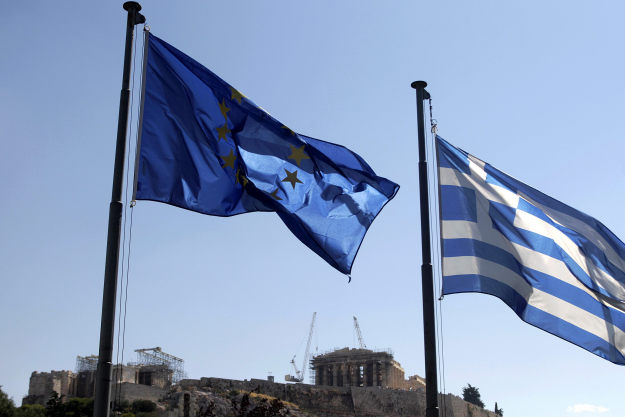Centre for Peace Studies (CMS), Croatian Platform for International Citizen Solidarity (CROSOL), Association of Croatian Trade Unions, Group 22 and Centre for Labour studies, are expressing deep concern over the serious threat to the fundamental European values of democracy, solidarity, social justice and human rights protection in the case of the current Greek debt crisis. These values are not threatened by marginal groups, extremists or an “external enemy”, but rather by the major European institutions that are relentlessly imposing a policy of cuts and sale of key national resources in exchange for facilitating debt repayment to creditors. Thereby, CMS, CROSOL, Association of Croatian Trade Unions, Group 22 and the Centre for Labour Studies are joining the strong criticism voiced by civil society organizations across the EU (SOLIDAR network and the Alter Summit petition), addressed to EU institutions which are turning the Greek debt crisis into a crisis of European democracy.
The Troika (European Commission, European Central Bank and International Monetary Fund) is still persistently imposing a policy of cuts which has, in past six years, proven to be a failure and extremely harmful, resulting in a fall in GDP of 25 percent, impoverishment of the citizens and frighteningly high youth unemployment, at 60 percent. This kind of approach to the Greek debt crisis can be interpreted only as Einstein’s definition of insanity – stubbornly repeating the same activity hoping that it will yield a different result.
Despite the fact that the media are full of stories about Grexit, Greek tragedy and bankruptcy, very little has been said about details in Troika’s proposal which the Greek government considers disputable. It is worth mentioning that the Greek government’s proposal to reduce the military budget by 400 million euros and to reform the pension system and social benefits in retirement over the next four years, instead of a drastic reduction of pensions, was not accepted. The Greek government’s argument that pensioners are breadwinners of three generations of family due to extremely high youth unemployment was not important to the Troika. Also, Troika has not accepted the Greek government’s proposal to introduce a one-time 12 percent tax on corporate profits above € 0.5 million as well as the proposal to introduce a tax on gross revenues from gambling in the amount of 30 percent and generate revenue through licensing the telecommunications industry in the introduction of 3G and 4G.
According to many economists, including Nobel Prize winner Joseph Stiglitz, all those measures that would allow Greece to repay the debt through the provision of economic growth and investment in people, were dropped. The policy of cuts imposed by the IMF has been proven to prevent the recovery of the Greek economy and leads to further social stratification, impoverishment, and decline in GDP and reduction in employment. CMS, CROSOL, Association of Croatian Trade Unions, Group 22 and the Centre for Labour Studies would like to remind of another absurdity of the current situation: In its 2013 report, the IMF publicly acknowledged that it had made a mistake with the first aid package for Greece and underestimated the impact that austerity measures will have on the overall Greek economy. The report said that despite the policy of cutting, “market confidence” was not renewed, and points out that the burden of adjustment should be distributed to all spheres of society in order to support the implementation of the program, and that the obstacles to the implementation demonstrated the critical importance of the program to be accepted on the basis of a broad social consensus.
What can be a better guarantee of the society’s commitment to the implementation of specific policies than the legitimate decision of citizens to agree to it or not? How can the European Commission expect that Greece will implement the European Charter of Fundamental Rights, when the policies of cuts proposed by the EC are diametrically opposed to the conditions which are necessary to achieve the same rights? As Stiglitz points out, the Greek situation is not a question of economics and money, but a question of power and democracy. The policy of cuts proposed by the Troika leads to a perpetuation of the suffering of Greek citizens, the inability of economic recovery, and thus the impossibility of debt repayment. The current Greek government and citizens should stop being treated as the guilty party, because they are the ones who are trying to bring the country out of the crisis for which previous irresponsible and incompetent Greek governments are accountable.
Therefore, CMS, CROSOL, Association of Croatian Trade Unions, Group 22 and the Centre for Labour Studies are sending out a call: Ladies and gentlemen decision-makers, re-read the European treaties, the European Social Charter and the Charter of Fundamental Rights, and say whether your proposals to Greece have led to implementation of those documents. Or be honest and admit that the legal standards, values and ideals of the European Union – democracy, solidarity, social justice, human rights – have no place in negotiations about “serious matters” like money. After the Greek crisis, whose Europe are we to trust?
